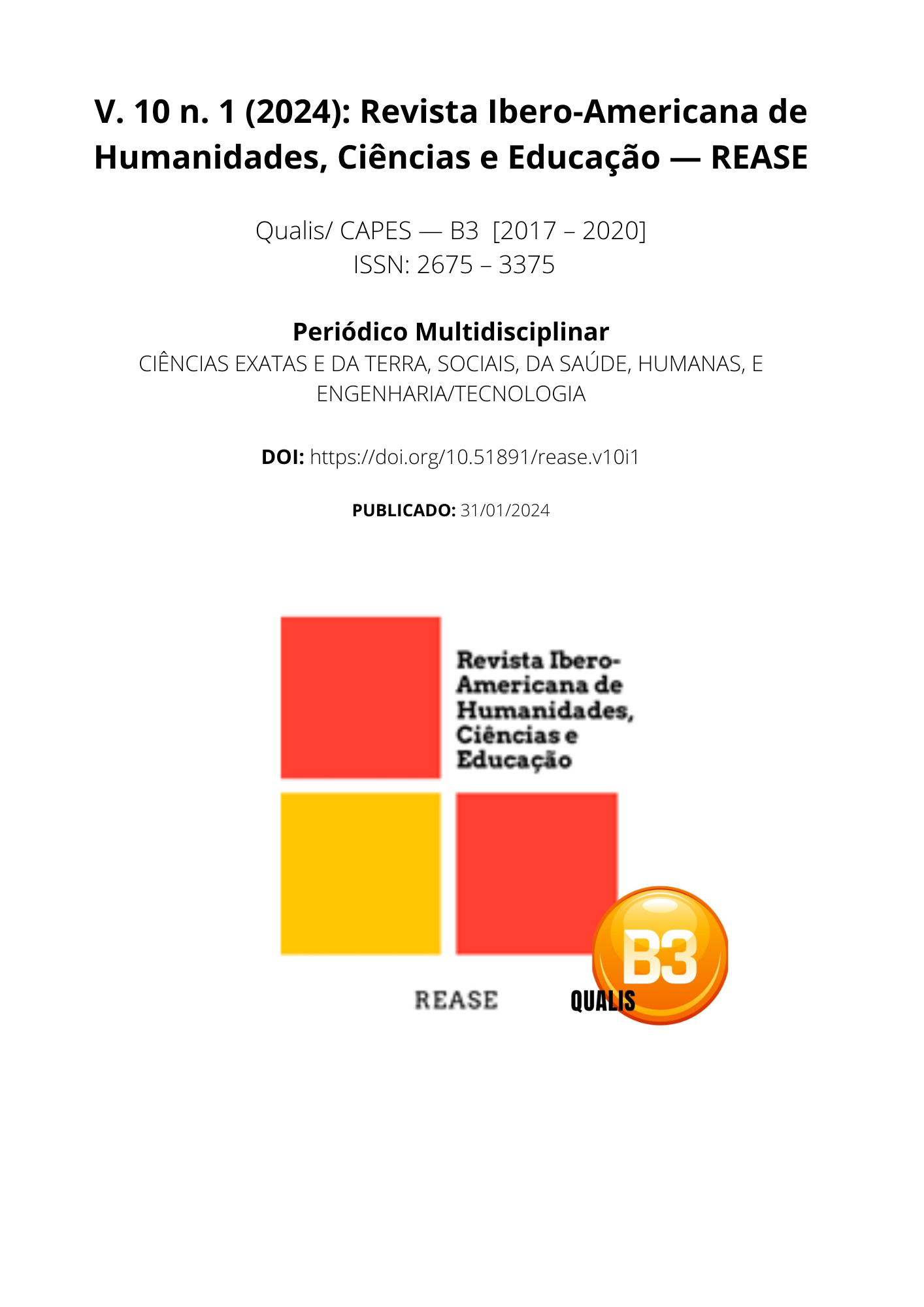THE MULTIDISCIPLINARY APPROACH TO METABOLIC SYNDROME AND ITS CARDIOVASCULAR OUTCOMES
DOI:
https://doi.org/10.51891/rease.v10i1.12940Keywords:
Metabolic syndrome. Cardiovascular diseases. Risk factors. Multidisciplinary approach and outcomes.Abstract
Metabolic syndrome is a complex condition characterized by a combination of cardiovascular risk factors, such as abdominal obesity, insulin resistance, dyslipidemia and high blood pressure. Its approach demands a multidisciplinary vision, considering the interconnection between different disciplines, such as endocrinology, cardiology, nutrition and epidemiology. This integrated approach is essential to understand the complexity of metabolic syndrome and its cardiovascular outcomes. Objective: The systematic literature review aims to explore recent research and consolidate existing knowledge about the relationship between metabolic syndrome and cardiovascular outcomes. The aim is to critically analyze studies published in the last 10 years, highlighting the most relevant findings and identifying gaps in current understanding. Methodology: The methodology adopted follows the guidelines of the PRISMA (Preferred Reporting Items for Systematic Reviews and Meta-Analyses) checklist. The PubMed, Scielo and Web of Science databases were consulted, using the descriptors "metabolic syndrome", "cardiovascular diseases", "risk factors", "multidisciplinary approach" and "outcomes". Three inclusion criteria were applied: studies published in the last 10 years, focused on adults and that addressed metabolic syndrome and its cardiovascular outcomes. Three exclusion criteria were adopted, considering studies in pediatric populations, literature reviews and articles with inadequate methodology. Results: revealed a significant association between metabolic syndrome and increased risk of cardiovascular events, highlighting the importance of a multidisciplinary approach in its management. The relationship between specific components of the metabolic syndrome and cardiovascular outcomes has also been explored, providing valuable insights for clinical practice. Conclusion: the continued need for research and integrated interventions to effectively address this syndrome and prevent associated cardiovascular complications is highlighted.
Downloads
Downloads
Published
How to Cite
Issue
Section
Categories
License
Atribuição CC BY

